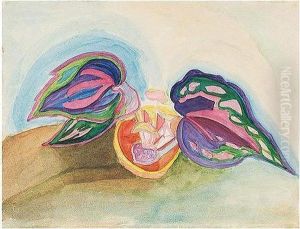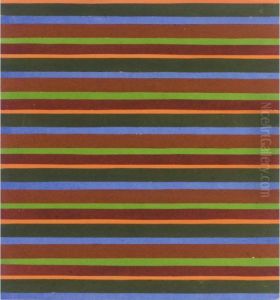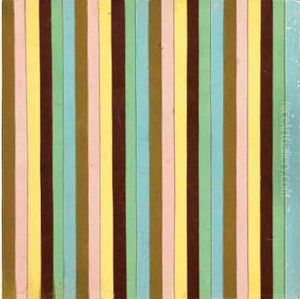Mikhail Matiushin Paintings
Mikhail Matiushin was a prominent Russian artist, composer, and theorist, most renowned for his contributions to the avant-garde movement during the early 20th century. Born in Nizhny Novgorod, Russia, on June 14, 1861, Matiushin's early interests spanned both music and visual arts, leading him to study at the Saint Petersburg Conservatory and later at the Academy of Arts in Saint Petersburg. His multifaceted talents and interests positioned him uniquely at the crossroads of Russia's burgeoning artistic movements.
Matiushin's artistic journey was deeply intertwined with the Russian avant-garde, particularly through his involvement with the Union of Youth, an association of artists and musicians dedicated to exploring new artistic paths. His collaboration with key figures of the Russian avant-garde, including Kazimir Malevich and Vladimir Tatlin, significantly influenced his work, pushing him towards experimentation and innovation. He was especially close to Malevich, with whom he co-created the opera 'Victory Over the Sun' in 1913, a landmark event that marked the first public display of Malevich's Suprematism, for which Matiushin composed the music and contributed to the set design.
Matiushin's interest in the synthesis of arts and his quest for expanding the sensory experiences of color and vision led him to establish the State Institute of Artistic Culture in Petrograd (now Saint Petersburg) where he headed the Department of Organic Culture. This department focused on researching the theory of 'extended seeing,' a concept that proposed a more holistic perception of the environment, transcending traditional sensory boundaries. His work in this area was pioneering, blending scientific inquiry with artistic exploration to understand the psychological and physiological aspects of perception.
Despite his significant contributions to Russian avant-garde art and theory, Matiushin's legacy is less recognized internationally compared to some of his contemporaries. After the 1917 Russian Revolution, he remained in Soviet Russia, where he continued his artistic and educational activities until his death in Leningrad (formerly and currently Saint Petersburg) on October 14, 1934. Throughout his career, Matiushin sought to break down the barriers between art forms, advocating for a total art that integrated visual, musical, and spatial dimensions. His work and theories continue to be studied for their innovative approaches to understanding art and perception.


